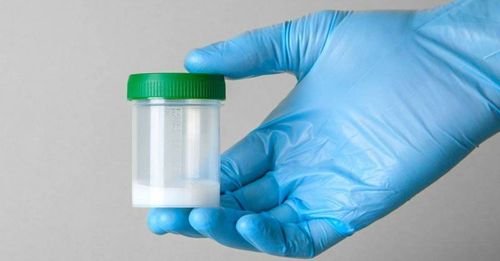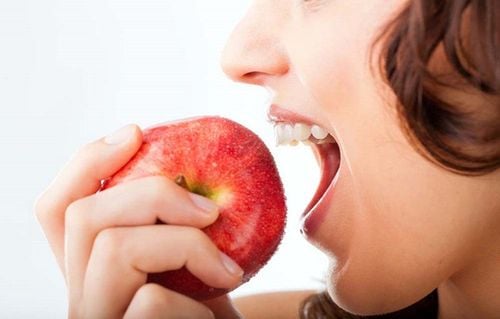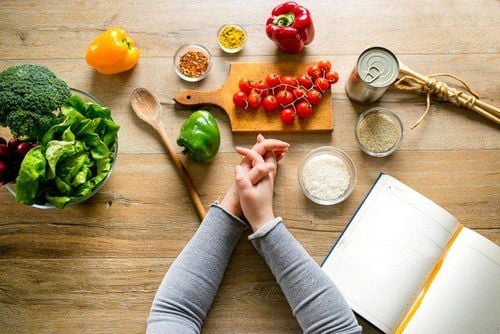Insulin is an important hormone that helps sugar from the blood enter the cells for storage. When cells are resistant to insulin, it leads to high blood sugar levels and if this condition persists, it can lead to the risk of many diseases such as heart disease, type 2 diabetes, etc. Improving the level of cell response to insulin, also known as insulin sensitivity, will help you avoid these risks. Here are 14 natural ways to improve insulin sensitivity that have been scientifically proven.
1. Get More Sleep
Lack of sleep can be harmful and increase your risk of infections, heart disease, and type 2 diabetes. Some studies have also linked poor sleep quality to decreased insulin sensitivity.
Lack of sleep can be harmful to your health and can increase insulin resistance, hyperinsulinemia, and hyperglycemia. Making up for lost sleep can help reverse these effects.
2. Exercise More
Exercising more is one of the most effective ways to increase insulin sensitivity.
It helps more sugar get into the muscles for storage and boosts insulin sensitivity immediately, depending on the exercise, the effect can last from 2 to 48 hours.
Resistance training also helps increase insulin sensitivity. And combining aerobic and resistance training can increase the effect the most.
3. Reduce stress
Stress affects your ability to regulate blood sugar. It encourages your body to go into “fight-or-flight” mode, stimulating the production of stress hormones like cortisol and glucagon. These hormones break down glycogen, a stored form of sugar, into glucose, which enters your bloodstream for your body to use as a quick source of energy.
Continuous stress keeps your stress hormones high, which stimulates the breakdown of nutrients and increases blood sugar. Stress hormones also make your body more resistant to insulin, increasing blood insulin, preventing the storage of nutrients, and prolonged insulin resistance can be harmful to your body.
Many studies have found that high levels of stress hormones reduce insulin sensitivity. Activities like meditation, exercise, and sleep are great ways to reduce stress and increase insulin sensitivity.
4. Lose Weight
Being overweight, especially in the abdominal area, reduces insulin sensitivity and increases your risk of type 2 diabetes. Belly fat can do this in several ways, such as by producing hormones that promote insulin resistance in your muscles and liver.
Losing weight is an effective way to reduce belly fat and increase insulin sensitivity, which can help reduce your risk of type 2 diabetes if you have prediabetes.
You can lose weight in many ways, such as: adjusting your diet, exercising, and making lifestyle changes,...
5. Eat more soluble fiber
Soluble fiber helps lower cholesterol and reduce cravings. Some studies have found a link between high soluble fiber intake and increased insulin sensitivity.
Soluble fiber also helps feed the friendly bacteria in your gut, which has been linked to increased insulin sensitivity. Foods high in soluble fiber include beans, oatmeal, flaxseeds, vegetables like kale, broccoli, and fruits like oranges, tangerines, and apples.
6. Add more colorful fruits and vegetables to your diet
Colorful fruits and vegetables contain plant compounds that have antioxidant properties. Antioxidants bind to and neutralize molecules called free radicals, which can cause inflammatory reactions in the body.
Several studies have found that eating a diet rich in plant compounds is associated with higher insulin sensitivity. Be careful not to eat too much fruit at one time, however, as some types are high in sugar.
7. Cut back on carbs
Carbs are a major contributor to insulin spikes. When your body converts carbs into sugar and releases them into your bloodstream, your pancreas releases insulin, which increases your insulin levels and moves sugar from your blood into your cells.
Reducing your carbs can help increase your insulin sensitivity, as high-carb diets can cause spikes in blood sugar, which forces your pancreas to work harder to increase insulin and remove sugar from your blood.
Spreading your carbs throughout the day will give your body less sugar at each meal, making it easier for insulin to do its job, increasing insulin sensitivity.
The type of carbs you eat is also important. Carbs with a low glycemic index (GI) are best, as they slow the release of sugar into your bloodstream, giving insulin more time to work effectively. Carb sources with a low GI include: brown rice, sweet potatoes, quinoa, some types of oatmeal, etc.
8. Reduce your added sugar intake
Added sugars are sugars that are added during processing, and are found in ultra-processed foods. Foods that are high in added sugars are also high in fructose. High fructose consumption can lead to an increased risk of insulin resistance.
Several studies have found that higher fructose intake can increase insulin resistance in people with diabetes. So, to reduce your added sugar intake, you should limit foods like candy, sugary drinks, cakes, cookies, and pastries.
9. Add herbs and spices to your food
Herbs and spices including fenugreek, turmeric, ginger, and garlic have shown promising results in increasing insulin sensitivity.
Fenugreek seeds are high in soluble fiber, which helps insulin to be used more efficiently.
Turmeric: contains curcumin, an active ingredient with powerful anti-inflammatory and antioxidant properties. By reducing free fatty acids and blood sugar, curcumin appears to increase insulin sensitivity.
Ginger: Studies have found that the active ingredient gingerol in ginger can make sugar receptors on muscle cells more available, increasing sugar absorption.
Garlic: Garlic improves insulin secretion and has antioxidant properties that increase insulin sensitivity
The findings on these herbs and spices are promising, but most of the studies are recent and have been conducted on animals, so more research is needed before any definitive conclusions can be drawn.
10. Add a dash of cinnamon
Cinnamon is a delicious spice that is packed with plant compounds. Cinnamon can help increase insulin sensitivity by increasing the transport of glucose into cells and may even mimic insulin to increase the absorption of sugar from the blood.
11. Drink More Green Tea
Green tea is a great choice for people with type 2 diabetes or those at risk of developing the disease. Drinking more green tea may help improve overall health and insulin sensitivity. The increased insulin sensitivity associated with green tea may be due to the antioxidant epigallocatechin gallate.
12. Try Apple Cider Vinegar
Vinegar is a versatile liquid that can help increase insulin sensitivity by lowering blood sugar levels and improving the effectiveness of insulin. It is also a key ingredient in apple cider vinegar.
Vinegar also slows the release of food into the intestines, giving your body more time to absorb sugar into your bloodstream.
13. Avoid trans fats
The link between trans fats and insulin resistance is stronger in animal studies than in human studies. However, it is best to avoid them because they increase the risk of many other diseases.
Foods that often contain trans fats include baked goods, doughnuts, and fried fast foods. Trans fats are often found in many processed foods.
14. Try Supplements
The idea of using natural supplements to increase insulin sensitivity is relatively new. Supplements that may increase insulin sensitivity include chromium, berberine, magnesium, and resveratrol.
Chromium is a mineral involved in the metabolism of carbs and fats. Research has shown that supplementing with chromium picolinate at appropriate doses improves the ability of insulin receptors to function, thereby reducing blood sugar levels.
Magnesium is a mineral that works with insulin receptors to store sugar in the blood. Taking magnesium may help increase insulin sensitivity.
Berberine is a plant molecule extracted from a variety of herbs including the Berberis plant. Its effects on insulin are not yet known, but some studies have found that it increases insulin sensitivity and reduces blood sugar
Resveratrol is a polyphenol found in the skins of red grapes and other berries. It may increase insulin sensitivity, especially in people with type 2 diabetes, but its function is not yet fully understood
As with all supplements, there is a risk of interactions with your current medications. It is best to talk to your doctor before starting any medication.
To arrange an appointment, please call HOTLINE or make your reservation directly HERE. You may also download the MyVinmec app to schedule appointments faster and manage your reservations more conveniently.
Reference source: healthline












